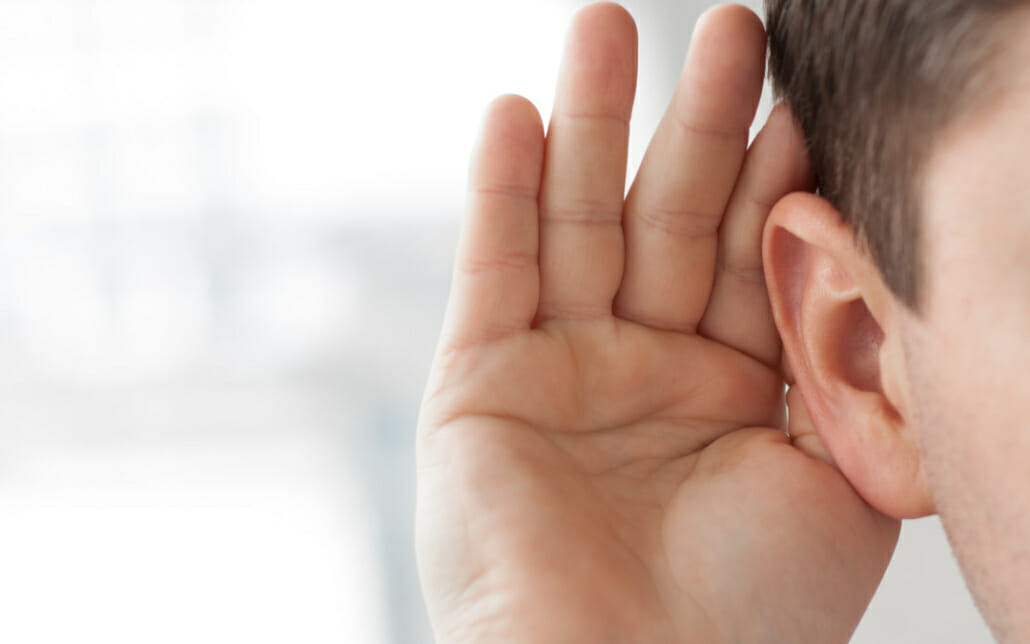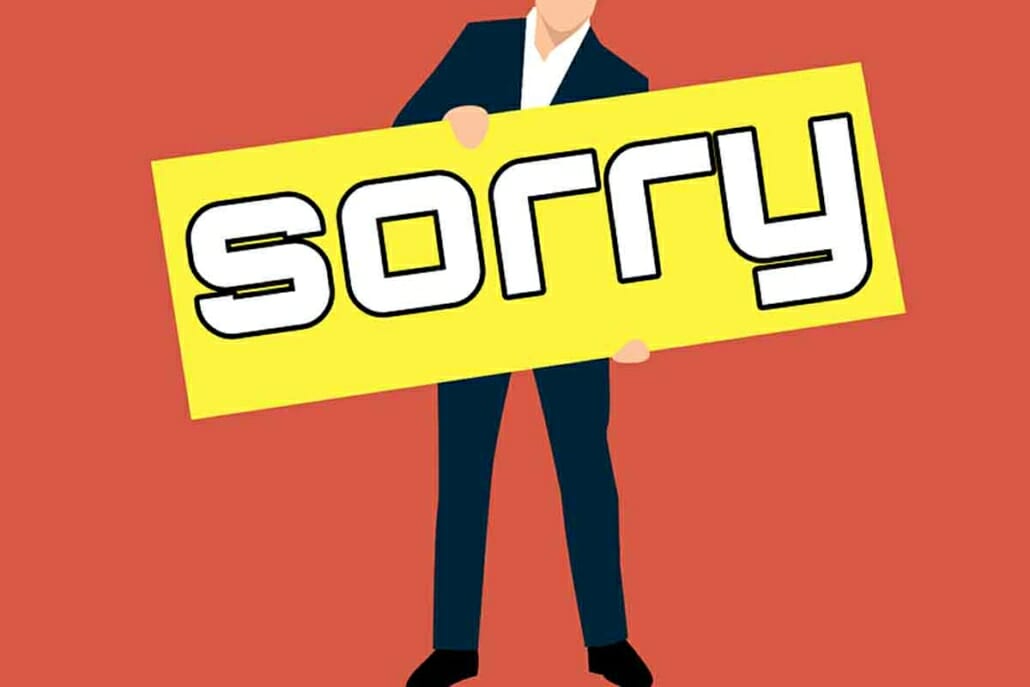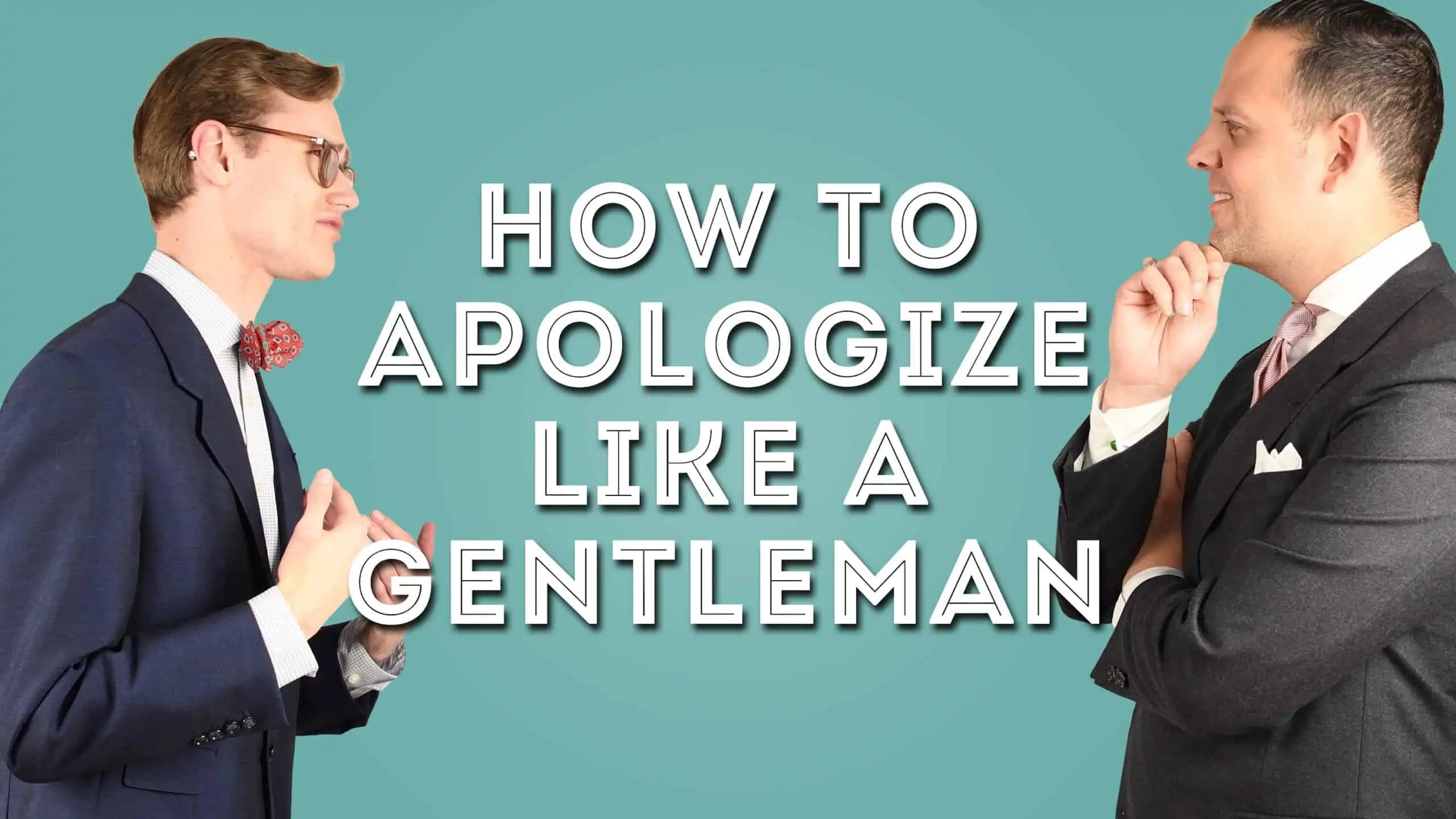One important piece of social etiquette for every gentleman to be able to carry out well and often is apologizing. Inherent to the process of any apology can be feelings of failure, regret, insecurity, defensiveness, and indignation. But even though these are natural emotional responses when you find that you’re at fault in a given situation, knowing how to apologize politely and with class is a skill that should be in every gentleman’s arsenal.
The simple fact to remember is: no one person can be right 100% of the time. You may think you’re right all the time, but if you do, I’ve got news for you! Not only does everyone else around you think you’re insufferable, but it’s also simply not true. Of course, this is an extreme case that’s easy to condemn, and we believe that most readers here are aspiring to be gentlemen–and therefore, probably don’t believe that they’re right all the time. Still, even if you do apologize when you’re at fault, there are skills that you can improve upon to make sure that your apologies will be received effectively.
Apologizing Doesn’t Make You Weak
Some men are hesitant to apologize when they’re in the wrong, because they believe that it will look like a sign of weakness. The fact of the matter is though, never apologizing for anything will be a losing tactic for you. By never apologizing, not only would you deny other people in your life the respect they deserve by getting a proper apology, but you’ll also end up with the result that you’re trying to avoid; by never apologizing, you will actually look weaker.
Apologizing is not actually a sign of weakness and it doesn’t mean that you’re “less;” less intelligent, less competent, less successful, or have less potential. In fact, just the opposite. If you never apologize for anything, what this actually signals to others is that your ego is too fragile to ever admit being wrong. In other words, you’ll just end up looking insecure rather than stronger in your convictions.

Others will think that you’re trying to avoid feeling bad for doing something you did, which is something that we all need to go through in order to grow as people. In other words, not apologizing to someone for something you did shows that you value your own ego more than the other person’s feelings. Being strong in this regard (or if you prefer, being a gentleman) means doing the hard emotional work that’s inherent to any strong relationship. This, in turn, means that you should apologize well and apologize often, when it is warranted.
Why Is Apologizing Good For You?
There are actually several benefits to good apologies; the first of these is that you will have a greater understanding of what is and isn’t workable in any given relationship. Also, you’ll be able to create a balance between your own needs and the needs of other people, and clear the air in rough patches with open and honest communication. After an apology, everyone involved will be able to deal with the given situation and move forward, and ultimately, you’ll probably learn something more about yourself.
How To Apologize Like A Gentleman
Actively Listen
When you’re called out as being in the wrong, start by not putting up a defensive wall, but rather by genuinely listening to the other person. You may think that you don’t need to apologize, but studies have shown both that men and women have different levels of tolerance for offensive behavior, and that women (on average) tend to apologize more than men. In other words, men are the ones who most likely will put up this defensive wall as a first reaction.

Another component of actively listening to what the other person is trying to say is keeping in mind that no one will ever be able to share your perspective on a situation 100%, because they just aren’t inside your head. And of course, the reverse of the situation is true, so you won’t be able to know exactly what the other person’s perspective is. Still, by listening actively and keeping calm, you’ll be able to get a better sense of it and move forward. The most important thing here is to get to the root of whatever caused the offense in the first place.
Say “Sorry” Immediately
If it becomes clear that you are, in fact, in the wrong in a given situation, don’t drag out the time it takes to make an apology. Rather, it’s best to apologize promptly, as soon as you realize it’s necessary. When apologizing to someone, doing it in-person is the best course of action.

The second best option here is to apologize over the phone, and the third best would be textual communication, such as text messages or email. However, we wouldn’t recommend that you use a textual apology unless it’s an absolute last resort and you don’t have another alternative. One big reason that text-based apologies should be avoided is that some of the nuance of in-person conversation can be lost over text, and therefore, there’s a greater potential for things to be miscommunicated. More generally though, a textual apology just removes some of the sincerity of the apologizing process, and the other person will probably find it less valuable.
Sincerity Is Key
Think of it this way: when a parent demands that their child apologize for something that the child has done, this apology is often not delivered with very much sincerity. The child is just apologizing because they think they have to. In a similar vein, if you’re only apologizing because you think you have to, it won’t come across as sincere and the other person won’t find it to be meaningful. What’s the best way to communicate this sincerity, then? It’s a matter of perspective and how you phrase your apology. In other words, you should only be focusing on what you did, the actions that are actually at fault. This is the key difference between a genuine apology like, “I’m sorry I did this” and a heavy-handed non-apology like, “I’m sorry you feel that way.” In this latter case, what you’re communicating is that you’re not actually sorry for anything you did; you only think that the other person reacted in the wrong way.
Also, don’t add any qualifiers to your apology by saying something like, “I’m sorry, but…” If you try to add anything else onto the apology, it will probably cheapen the sincerity and may also have the potential to again shift blame to another party (which you’re trying to avoid doing). So, what happens when you’re not the only person or party who’s at fault in a given situation? In this case, you can acknowledge that everything wasn’t entirely your fault, but also still apologize. You could say something like, “I’m sorry for my part in this.” That way, you’re still acknowledging responsibility, while also communicating that you weren’t the only one who was at fault.

To sum up, just keep it simple: start by saying you’re sorry, then explain why, and be sincere. If you feel like it, you can also add on what you plan to do in the future to avoid similar situations. The other party will probably appreciate an effort for proactive action on your part.
What Should You Do After Apologizing?
Moving forward can be a simple process, but it can also sometimes be complicated. People may hold a grudge for a little while based upon something you’ve done–and frankly, it’s at least somewhat in their right to do so, if you did commit an act of wrongdoing. You shouldn’t expect that an apology, even if it’s one that’s well worded and sincere, is going to completely nullify any wrong thing you may have done in the first place. Instead, just make a commitment to be the bigger person and avoid committing the same mistake again. If you can actually show that your behavior is changing, the other person will be more likely to regain the respect for you that they had. In other words, not only should your apology be sincere, but so should your follow-through as you proceed into the future.
How To Accept An Apology
Another imprtant thing to note here: if someone apologizes to you, it’s important to accept their apology gracefully. In other words, don’t meet them with hostility or dismissiveness, just take their apology (especially if it’s genuine) for what it is, and then hopefully you’ll both be able to move on.

Conclusion
We’re not saying that any man should necessarily think that he has to be a “shrinking violet” and apologize for everything under the sun. Instead, when situations arise where you are actually at fault, it’s important to give a sincere apology to the parties who were affected. That’s a mark of a true gentleman.


Twenty years of marriage has taught me to apologize early; apologize often.
And if one fancy’s one’s spouse might be on edge, a hug and an apology is always good policy. If she isn’t upset and queries why, the stock response is: “For not being a better husband.”
Your response is so sincere and well-spoken. Your wife is lucky to have you.
Having spent 15 years in the airline industry and 15 years in construction, I’ve learned that there are many different ways to apologize. I would strongly encourage people to also be willing to learn from the apology. Ask for guidance. You many, of course, get the “don’t be such a .” You might also learn something about both yourself and the other party. Being able to communicate beyond an apology and manage conflict is a critical skill.
Thanks for sharing, John.